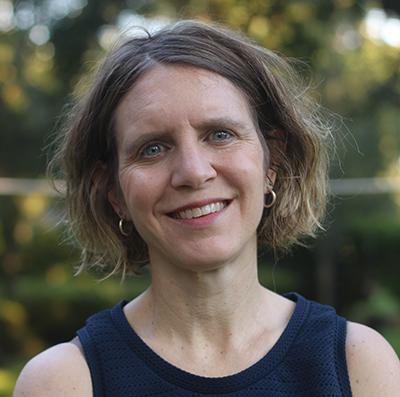Study: Understanding Informal Support for Low-Income, Single Mothers in the US

FSU College of Social Work Associate Professor Melissa Radey was recently awarded funding by the Eunice Kennedy Shriver National Institute of Child Health and Human Development to understand the roles of informal support among low-income families with young children in the United States. Informal support is the emotional, practical, or financial support that mothers can access from others, typically family, in times of need. The project uses data from the Welfare, Children, Families (WCF) project, a longitudinal study of low-income mothers of children living in Chicago, Boston, or San Antonio. Quantifying informal support is crucial to demonstrate the importance and stability of informal support for maternal wellbeing and child development.
The importance of informal support has increased as welfare distribution spending across all government programs has decreased through welfare reform in 1996. The government no longer entitles mothers to a cash safety net; instead, program receipt is contingent on work. The number of low-income families not receiving government benefits has increased rapidly from 12% in 2004 to 20% in 2008 and continues to rise. Mothers living in poverty have long relied on family and friends to supplement wages and government assistance, but informal support is even more important today as fewer families receive public benefits.
Informal support can be beneficial to mothers and children in the realms of general health outcomes as well as child cognitive development and behavior outcomes. However, the availability of informal support particularly in disadvantaged environments can exacerbate and create stress, rather than alleviate it. Often, people who offer support are disadvantaged themselves and expect reciprocity—difficult for many mothers to provide given their precarious situations.
Low-income mothers almost universally live with elements of instability, albeit housing, food, transportation, childcare, or medical. Informal support is not immune to this instability as economic situations change or relationships evolve. “To complicate matters, informal support for single-mother families tends to decline as a child ages, especially among the most disadvantaged mothers,” Radey explained. “My study seeks to incorporate two components of informal support: the potential burden and how it changes over time, and how these affect mother and child outcomes like stress and development.”
The project is significant because the findings may provide an impetus for prioritizing effective peer social support interventions and promote policies that prioritize community building while providing need-based, welfare services for low-income mothers and families.
“Addressing these factors are crucial as current policy and practice often ignore informal support and its consequences,” Dr. Radey stresses. “The project offers conceptual innovation by quantifying the consequences of both informal support and burden. It is methodologically innovative by utilizing advanced statistical longitudinal modeling to provide stronger evidence of causal pathways not determined by current research.”
Radey hopes that results will significantly advance knowledge and identify ways in which informal support changes over time and influences parenting and child outcomes, providing evidence for stronger public safety net programs that can buffer mothers and children from the effects of poverty.
Read about some of Dr. Radey's recent findings from this study in the Journal of Marriage and Family here.
To learn more, contact Dr. Radey at mradey@fsu.edu.
